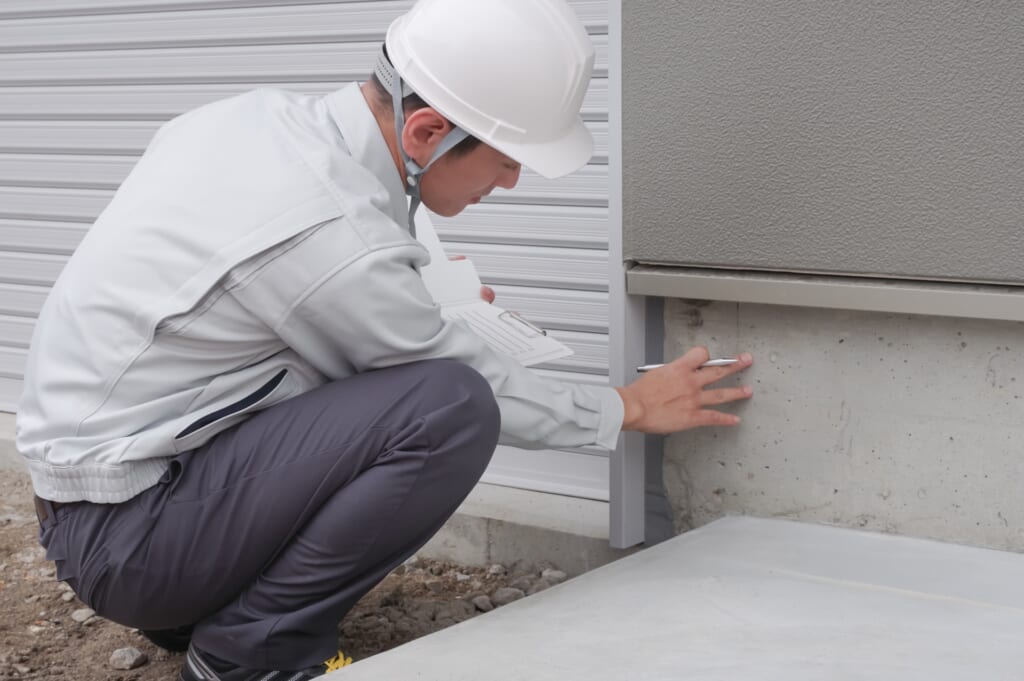Complete Guide to Apartment Management in Japan
Complete Guide to Apartment Management in Japan

Apartment management in Japan is not difficult for foreign owners. Professional services provided by management companies help maximize rental income and maintain the building’s condition.
These companies handle important tasks such as tenant selection, repairs and maintenance, and proper rent setting based on Japanese laws and regulations. Additionally, they offer multilingual support to ensure smooth communication. The stable Japanese real estate market also helps maintain asset value.
What is Property Management in Japan?
Property management in Japan involves property or apartment owners outsourcing management tasks to specialized management companies. These companies handle daily maintenance, repairs, tenant selection and contract management, rent collection, and more.
The Japanese real estate market operates under strict laws and regulations, and management companies ensure compliance. Property management reduces the burden on owners and streamlines rental operations. For foreign owners, choosing a multilingual management company is essential.
Necessity and Benefits of Property Management
Owning rental properties involves tasks such as tenant recruitment, contract management, maintenance, and troubleshooting. While self-management is possible, hiring a management company offers many benefits. Professionals can recruit and screen reliable tenants, saving owners from maintenance and repair hassles, and allowing them not to reside on-site.
Management companies are well-versed in local laws and regulations, minimizing owners’ risks. They handle issues smoothly, reducing owner stress. Professionals also provide optimal rent settings and market insights, maximizing revenue and asset value.
Overall, property management companies enable efficient operations, revenue maximization, and stress-free rental management.
Basics of Property Management in Japan
Property management in Japan is popular among foreign investors. Generally, property management companies handle rental property operations, allowing investors to manage their investments from abroad with peace of mind.
Management companies oversee all aspects of rental property operations, including tenant recruitment, contract procedures, rent collection, repairs and maintenance, property tax and insurance payments, and legal compliance. They also offer multilingual communication, ensuring smooth interactions with owners.
Selecting a reliable management company is crucial. Partnering with an experienced management company with specialized knowledge and experience ensures stable revenue.
Features of Property Management in Tokyo
Property management in Tokyo, Japan’s capital, has several unique features. Firstly, there is high demand. Tokyo’s rental market is vibrant, with diverse demand from domestic and international migrants, students, and business travelers.
Secondly, due to high land prices and population density, rental rates tend to be higher. Finding high-yield properties is therefore crucial. Additionally, Tokyo properties require stringent earthquake resistance and thorough management.
Foreign owners should consider geographical distance, language, and cultural differences, making a reliable management company partnership essential.
Differences in Property Management in Rural Areas

Property management in rural areas differs from urban areas. The balance of supply and demand varies, affecting rent settings and tenant selection. In rural areas, demand is lower, making it challenging to set high rents.
Additionally, rural rental properties often have higher demand for older properties than new ones. Therefore, focusing on maintenance and renovation of older properties is crucial. In contrast, rural areas have stronger community ties, requiring an understanding of local characteristics and needs.
Understanding the unique characteristics of each region and managing accordingly is vital for successful property management in rural areas.
Costs of Property Management
Property management costs include various elements. Fees vary based on the services provided by the management company. Common costs include a percentage of rental income as a management fee and maintenance fees for repairs. Additionally, budgeting for vacancy prevention and tenant recruitment costs is necessary. Management costs also vary by property size and location, with larger buildings and urban properties tending to have higher management fees.
Ongoing Operating Costs
Ongoing operating costs include regular cleaning, garbage collection, and maintenance of common areas. Costs for inspecting and repairing equipment such as elevators and air conditioners are also necessary. These costs vary depending on the building’s size and structure, so consulting experts to budget appropriately is important. Additionally, setting aside reserves for unexpected expenses is advisable.
Services for Foreign Owners
Services for foreign owners are gaining attention in the Japanese real estate market. Japanese management companies provide services tailored to foreign owners‘ needs and offer multilingual support. For example, more management companies are handling tenant recruitment and contract procedures on behalf of owners. Professional services for building renovations, regular cleaning, and maintenance work also reduce the owner’s burden.
Reports and financial statements are provided online, enabling remote property management. This allows overseas owners to manage their assets with confidence. Additionally, dedicated managers facilitate smooth communication with management companies, addressing questions and requests promptly and appropriately.
Multilingual Services
Multilingual services are a significant advantage for foreign owners. Japanese management companies offer support in various languages, including English, ensuring smooth communication. Conducting important tasks such as tenant recruitment, contract procedures, and rent transactions in one’s native language provides peace of mind. Additionally, reports and financial statements in multiple languages provide valuable information to owners.
Effective Property Management Methods
Effective property management involves several key points. First, selecting suitable tenants is crucial. Reliable tenants can be secured by requesting application forms and income certificates and conducting background checks. Next, regular maintenance of the building and rooms is essential. Regular cleaning and repairs maintain the property’s value.
Proper rent setting is also important. Setting rents in line with market prices maximizes real estate investment returns. Smooth communication with tenants is vital. Prompt and appropriate responses to issues build trust with tenants. By addressing these points, effective property management can be achieved, leading to full occupancy and revenue maximization.
Marketing and Vacancy Countermeasures
Effective marketing of rental properties involves using appropriate advertising methods and social media. Attractive photos and videos enhance online exposure, attracting more potential tenants. Additionally, vacancy countermeasures include renovating and refurbishing properties to make them more appealing to prospective tenants.
Utilizing Property Management Apps
Property management apps are convenient tools for real estate investors. Apps allow for centralized management of property finances and repair histories. They facilitate communication with tenants, aiding in the quick resolution of issues. Apps also streamline management of vacancy information and rent arrears. Multilingual apps are available, offering high convenience for foreign owners. Features include emergency contact management and storage of important documents. Utilizing apps enables smoother property management.
Maintenance of Rental Properties
Maintaining rental properties requires regular maintenance and repairs. This includes cleaning the entire building, maintaining common areas, and inspecting and servicing equipment like elevators and air conditioners. Regular repairs of interiors and equipment in individual units are also essential. This maintains a comfortable living environment for tenants and preserves long-term asset value.
Quick response to faults and issues is crucial in property maintenance. Management companies ensure 24/7 response capabilities, ensuring tenant safety and security. Regular inspections and updates based on laws and regulations ensure compliance and prevent future issues. Property maintenance is vital for both owners and tenants, requiring professional management company support.
Regular Maintenance
Regular maintenance includes cleaning and periodic inspections of the entire building. Those regular inspections of the building’s exterior and roof detect and repair deterioration or damage early, maintaining the building’s durability. Cleaning common areas improves the living environment and creates a positive impression on tenants and visitors. Regular inspection and maintenance of equipment like elevators and air conditioners prevent breakdowns and resolve issues promptly. Interior and equipment repairs also require timely attention.

Improving Tenant Satisfaction
Improving tenant satisfaction requires smooth communication and quick responses. Management companies conduct regular surveys and feedback collection to understand tenant needs. Prompt responses to issues and implementing improvements build trust with tenants. Good relationships encourage long-term stays and positive word-of-mouth, enhancing property appeal.
Legal and Licensing
Compliance with laws and licensing is crucial in Japanese property management. Real estate agents must have a “Real Estate Transaction License”. Licensed agents possess legal knowledge and skills, ensuring reliability.
Additionally, lease contracts must be drafted and updated in accordance with legal regulations. Legal compliance in building management includes adhering to safety standards and fire regulations through regular inspections and repairs.
In the event of tenant disputes, appropriate legal action is required. Compliance with laws and licensing ensures proper property management and prevents issues.
Legal Requirements for Property Management
Key legal requirements for property management include several important points. Lease contracts must be clearly drafted, specifying rent, renewal conditions, repair responsibilities, and move-out procedures. Respect tenant privacy and rights by managing information according to the Personal Information Protection Act.
Building management requires compliance with fire safety and sanitation laws. Regular inspections and necessary repairs ensure safety and adherence to regulations.
Move-out inspections follow legal guidelines. Owners can charge reasonable fees for damages upon tenant move-out. Compliance with these legal requirements prevents disputes and ensures proper property management.
License Acquisition Process
To engage in real estate business, one must first pass the Real Estate Transaction Specialist Qualification Exam. The exam covers legal and contractual knowledge. After passing, the individual becomes a Real Estate Transaction Specialist.
After gaining three years of practical experience as a Real Estate Transaction Specialist, one can apply for the Real Estate Transaction Manager License. This application requires proof of practical experience.
Acquiring the Real Estate Transaction Manager License provides professional legal and contractual knowledge, enabling engagement in real estate sales and leasing.
The license acquisition process involves passing the exam, gaining practical experience, and applying for the license. Acquiring the Real Estate Transaction Manager License advances one’s professional career in real estate.
Frequently Asked Questions (FAQs)
Below are common questions about managing apartments in Japan:
Residency is not required. You can own property even if you live abroad.
Yes, but it involves compliance with Japanese laws and regulations, proper communication with tenants, and handling emergencies.
Hiring a professional management company ensures proper rent settings, tenant recruitment, and maintenance, maximizing revenue.
Yes, with a multilingual management company, you can own an apartment without speaking Japanese.
Managing rentals requires expertise in Japanese laws and regulations, as well as communication skills with tenants.
Yes, many management companies accommodate overseas owners and handle daily management and emergencies promptly.
Conclusion
Apartment management is a crucial aspect of real estate investment in Japan. This guide for foreign owners and those needing multilingual support highlighted the importance of professional management companies in maintaining building conditions, selecting tenants, and setting appropriate rents. Japan’s stable real estate market makes it an attractive option for foreign investors. Through apartment management, investors can expect stable revenue and increased asset value. Consulting experts and taking a strategic approach ensure successful investments in Japanese real estate.
